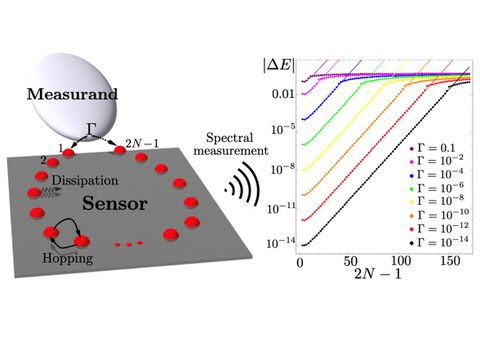Jan 11, 2021
Research: A Novel Class of Sensors Enabled by Unique Topological Properties of Dissipative Systems
The energy spectrum of closed quantum systems always exhibits a continuous behavior with respect to small parameter changes. By contrast, in open dissipative systems the generalized complex energy levels can be extremely sensitive to small perturbations, in particular allowing for an exponential amplification with system size of energy-shifts.
Researchers from TU Dresden and Stockholm University have now found a way to tame and harness this remarkable susceptibility of open systems for devising a new type of sensors coined Non-Hermitian Topological Sensors. Importantly, due to topological properties unique to dissipative systems, the aforementioned exponential amplification is promoted to a stable phenomenon that does not require any fine-tuning of system parameters. In this sense, dissipation, widely known for causing undesirable phenomena such as power consumption and decoherence, may become a crucial resource to boost the precision of future measurement devices. The potential fields of application of this discovery range from mechanical and optical meta-materials to atomic and electronic quantum many-body systems.
Jan Carl Budich and Emil J. Bergholtz,
Non-Hermitian Topological Sensors,
Phys. Rev. Lett. 125, 180403 (2020) (arXiv)

